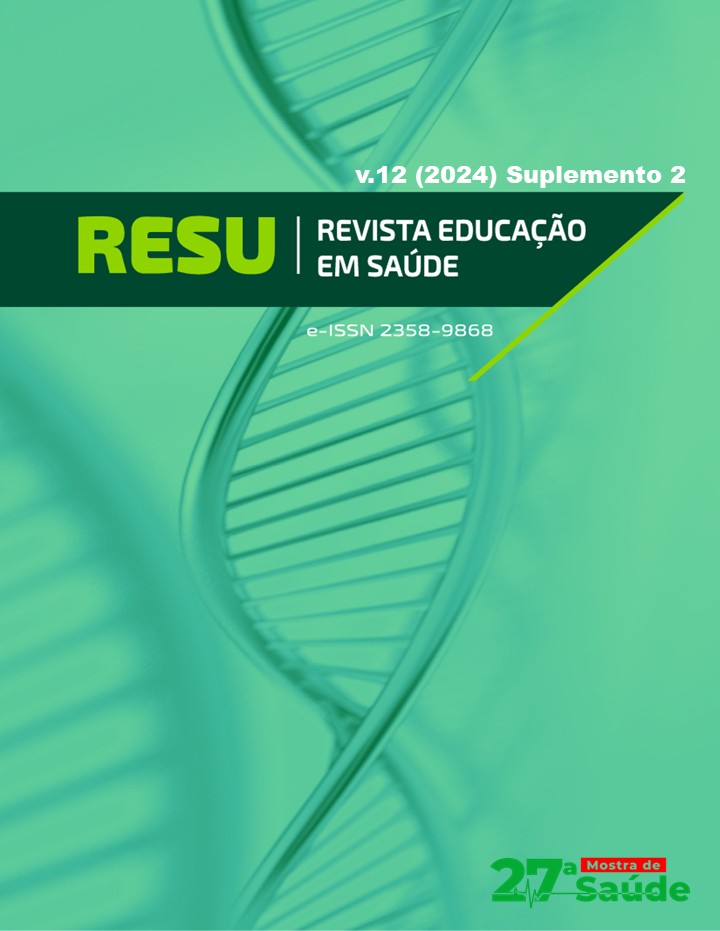Medicina do futuro: o uso da inteligência artificial em condutas de médicos pediatras – uma revisão integrativa
Palavras-chave:
Inteligência artificial, Pediatria, Diagnósticos, Dados clínicosResumo
A tecnologia, na forma de inteligência artificial (IA), tem se desenvolvido rapidamente nos últimos anos. Visto isso, a seguinte revisão integrativa teve como objetivo avaliar algumas formas de como o uso da IA pode auxiliar na conduta de médicos pediatras. Para a realização do estudo, foram analisados 15 artigos que mostram algumas maneiras de como a IA tem o potencial de contribuir para o atendimento clínico, proporcionando maior precisão, agilidade e aprendizado profundo, facilitando o trabalho dos médicos e aprimorando a tomada de decisões. Os resultados do estudo mostram que a IA tem o potencial de se tornar uma ferramenta crucial dentro do consultório, melhorando a conduta médica no atendimento de pacientes pediátricos. Assim, a IA tende a se tornar uma aliada indispensável dos médicos, contribuindo para uma maior qualidade de atendimento e assistência.
Referências
RAIPUKAR, P., et al. "CheXNet: Radiologist-level pneumonia detection on chest x-rays with deep learning."v.3, p.1-7, 2017.
CAI, J., et al. "Application of deep learning in pediatric imaging." European Journal of Radiology, v.122, n.108744, 2020.
LAKHANI, P., & Sundaram, B. "Deep learning at chest radiography: Automated classification of pulmonary tuberculosis by using convolutional neural networks." Radiology, v. 284, n. 3, p. 1-12, 2017.
TOPOL, E. J. "High-performance medicine: The convergence of human and artificial intelligence." Nature Medicine, v. 25, n. 1, p. 44-56, 2019.
OBERMEVER, Z., Powers, B. W., Vogeli, C., & Mullainathan, S. "Dissecting Racial Bias in an Algorithm Used to Manage the Health of Populations." Science, v. 366, n. 6464, p. 447-453, 2019.
VERDER, Henrik et al. Bronchopulmonary dysplasia predicted at birth by artificial intelligence. Acta Pediatric, v.110, n.2, p.503-509, 2020.
KOSKA, Ilker et al. Radiomics in differential diagnosis of Wilms tumor and neuroblastoma with adrenal location in children. Eur Radiol, v.34, n.8 p.5016-5027,2024.
NAIDOO, Jaishree et al. Artificial Intelligence in Pediatric Tuberculosis. Pediatric Radiol, v.28, p.1-13, 2023.
JIANG, Xusheng et al. A deep learning-based method for pediatric congenital heart disease detection with seven standard views in echocardiography. World Journal of Pediatric Surgery, v.6, n.3, p. e000580, 2023.
He L, et al. A multi-task, multi-stage deep transfer learning model for early prediction of neurodevelopment in very preterm infants. Sci Rep, v.10, n. 1, p. 15072-15086, 2020.
WANG, Q. et al. Predicting risk of overweight or obesity in Chinese preschool-aged children using artificial intelligence techniques. Endocrine, v. 77, n. 1, p. 63–72, 2022.
LIANG, G.; ZHENG, L. A transfer learning method with deep residual network for pediatric pneumonia diagnosis. Computer methods and programs in biomedicine, v. 187, n. 104964, p. 104964, 2020.
Wissel BD, Greiner HM, Glauser TA, Mangano FT, Holland-Bouley KD, Zhang N, et al. Automated, machine learning-based alerts increase epilepsy surgery referrals: A randomized controlled trial. Epilepsia; v. 64, n. 7, p. 1791–1799, 2023.
SEOL H. Y. et al. Artificial intelligence-assisted clinical decision support for childhood asthma management: A randomized clinical trial. PLoS ONE, v.16, n.8, p.e0255261, 2021.
MEDINA, R. et al. Electrophysiological brain changes associated with cognitive improvement in a pediatric attention deficit hyperactivity disorder digital artificial intelligence-driven intervention: Randomized controlled trial. Journal of medical internet research, v. 23, n. 11, p. 25466, 2021.
SU, C. et al. Machine learning for suicide risk prediction in children and adolescents with electronic health records. Translational psychiatry, v. 10, n. 1, p. 413, 2020.
LIANG H. et al. Evaluation and accurate diagnoses of pediatric diseases using artificial intelligence. Nat Med. V.25, n.3, p.433-438, 2019.
CLARK M. M. et al. Diagnosis of genetic diseases in seriously ill children by rapid whole-genome sequencing and automated phenotyping and interpretation. Sci Transl Med, v.11, n.489, p.6177-6186, 2019.
KIM, Y. et al. Early prediction of need for invasive mechanical ventilation in the neonatal intensive care unit using artificial intelligence and electronic health records: a clinical study. BMC Pediatric, v.23, n.1, p.525, 2023.
BRAGA, A. P. Universidade Estadual Paulista “Júlio De Mesquita Filho” Faculdade De Medicina, 2023.


